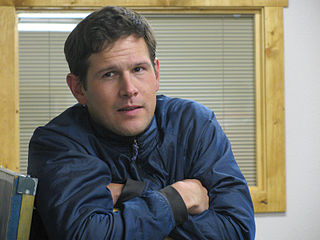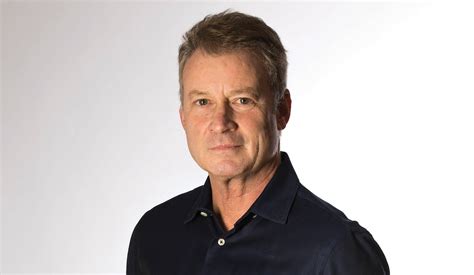A Quote by Paolo Bacigalupi
I think that, when I think about the future that 'The Water Knife' represents, it's one where there's a lack of oversight, planning and organization.
Quote Topics
Related Quotes
I think the oversight is great, and I think that oversight ought to be devoted almost entirely to the question is this being done at market you know. In other words, you want to make sure that the government isn't investing foolishly. But you don't want to care about which congressional districts it goes to or whether banks get favored over.
It is a little bit difficult to talk about things that do involve classified matters in public. But I think the public needs to know that there are multiple oversight layers, including the FISA Court, congressional oversight, internal oversight within the FBI and intelligence community, that protects Americans from - under - their - their privacy rights while targeting terrorists and people who are trying to kill us.
There are two kinds of people: one who goes on thinking about the future, not bothering about the present at all. That future is not going to come, that future is just a fool's imagination. I don't think about the future. I am a totally different kind of person. I don't think about the future at all, it is irrelevant.
We spend our whole lives worrying about the future, planning for the future, trying to predict the future, as if figuring it out will cushion the blow. But the future is always changing. The future is the home of our deepest fears and wildest hopes. But one thing is certain when it finally reveals itself. The future is never the way we imagined it.
Here in the Great Lakes region, a fourth year in a row of declining water levels has caused millions of dollars in losses for shipping companies, marinas and other businesses and prompted further restrictions on future water withdrawals for expanding suburbs. "A lot of people just can't believe that we may be running out of water, living this close to the Great Lakes," said Sarah Nerenberg, a water engineer with the Northeastern Illinois Planning Commission, which conducted the study on shortages.






































